PM Abbasi terms Pak-China friendship 'bedrock of strategic regional stability'
Pakistan's delegation meets UN general-secretary on the sidelines of Boao Forum
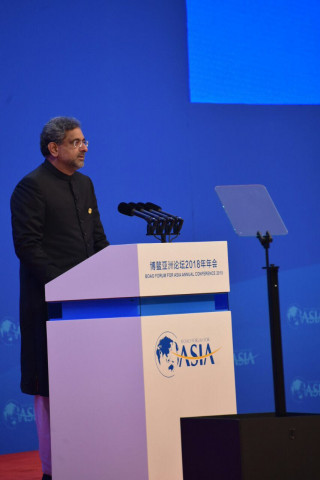
Prime Minister Shahid Khaqan Abbasi. PHOTO: EXPRESS
Addressing attendees at the Boao Forum on Tuesday at Hainan Island, the prime minister stated that it was “but natural for Pakistan to take the lead in partnering with China to usher a new era of peace and prosperity through enhanced connectivity”.
The premier, elaborating on Pakistan's economic progress, said the economy was growing at around six per cent – the highest in a decade. He also claimed that Pakistan was set to be the world’s 15th largest economy by 2050 after the capital market was upgraded from frontier to emerging market status.
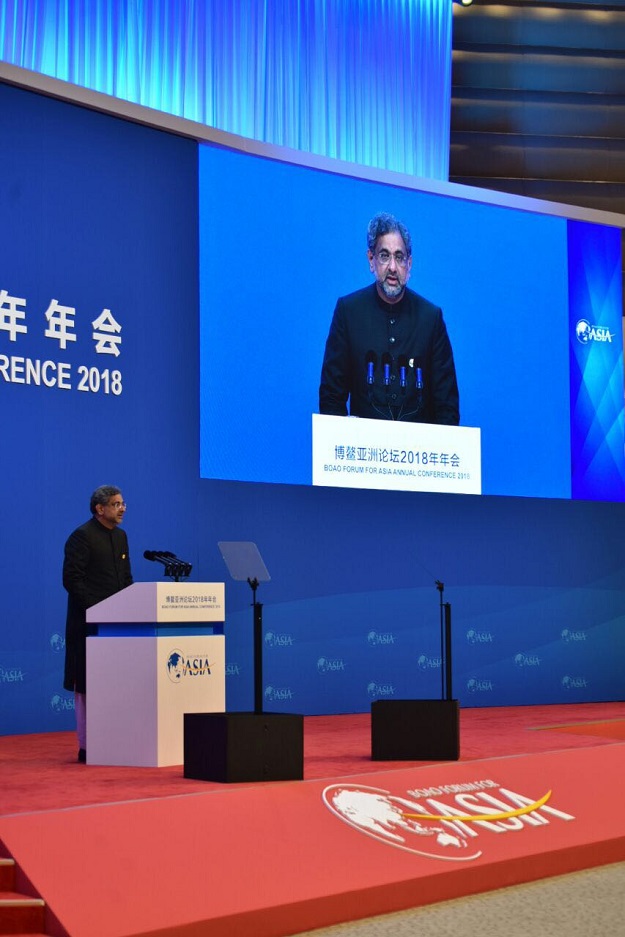 Prime Minister Shahid Khaqan Abbasi addressing the Boao Forum. PHOTO: EXPRESS
Prime Minister Shahid Khaqan Abbasi addressing the Boao Forum. PHOTO: EXPRESSReferring to the China-Pakistan Economic Corridor (CPEC) as an example of inclusive development paradigm benefitting all stakeholders, he said a brave of new Asia was taking shape “step by step” in Pakistan.
“At the southern tip of this corridor, development of the deepsea port of Gwadar is proceeding at a fast track. On completion, it will not only serve as a transit and transhipment hub, but become an economic nucleus. Besides Pakistan, it will afford shortest maritime and overland access to western China, central and south Asia and the Middle East.”
“We have already begun reaping dividends of CPEC rail, road and infrastructure projects. CPEC investment and its spin-off effects have generated thousands of jobs. 10,000MW has been added to our national grid, ameliorating our chronic energy shortages,” Abbasi informed the audience.
“Establishment of several Special Economic Zones (SEZs) along our highways and motorways is integral to CPEC plans. Pakistan aims to offer tailored incentive packages for the SEZs. We are confident that these zones will catalyse the development of innovation-based industries in Pakistan.”
Congratulating China’s President Xi Jinping on his re-election, the premier said he had led the country to a path along national rejuvenation. “The Boao Forum has emerged as a leading platform shaping international discourse on Asia and its place in the world,” he said. “President Xi’s historic Belt and Road Initiative has become a global public good, beneficial to all and bringing equality to an unequal world.”
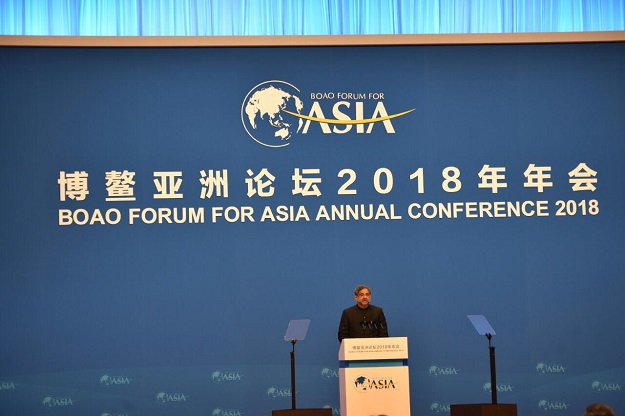 Prime Minister Shahid Khaqan Abbasi addressing the Boao Forum. PHOTO: EXPRESS
Prime Minister Shahid Khaqan Abbasi addressing the Boao Forum. PHOTO: EXPRESSEmphasising on trans-regional cooperation, the chief executive of the country hailed development projects such as TAPI and CASA-1000. “I firmly believe that development and security remain intrinsically indivisible. Only by spreading the dividends of open trade and shared innovation will we be able to promote tolerance and amity and deny space to extremism. The China-Pakistan-Afghanistan trilateral framework is aimed at achieving these very objectives.”
“As a new member of SCO, Pakistan aims to play a most productive role in utilising this platform to integrate further with the region.”
The prime minister concluded his speech with a Chinese saying that the “man who moves mountains begins by carrying away small stones.”
“It is time to lift stones; it is time to move mountains,” he said.
UN secretary-general calls on PM Abbasi
On the sidelines of the conference, United Nations Secretary-General Antonio Guterres called on the prime minister.
During the meeting, attended by Foreign Minister Khawaja Asif, Minister for Interior Ahsan Iqbal, Pakistan’s Ambassador to China Masood Khalid and other senior officials from the delegation, Abbasi expressed concerns at the deteriorating situation in Indian occupied-Kashmir (IoK).
The premier said that Islamabad sought a peaceful resolution of the dispute that reflected the “wishes of the people of Jammu and Kashmir” while adhering to UN Security Council Resolutions.
The premier upraised Guterres on the unprovoked ceasefire violations by India along the Line of Control (LOC) and the Working Boundary (WB) resulting in the death of civilians.
He also warned the situation can escalate “dangerously if the Indian side did not end repeated violations”.
Stressing on Pakistan’s zero tolerance policy towards terrorism, PM Abbasi reiterated the country’s sacrifices in the war against terrorism.
The UN Secretary-General acknowledged Pakistan’s efforts towards counter-terrorism, humanitarian assistance to the Afghan refugees and the UN peacekeeping operations. He maintained that he had been advocating the need for a serious dialogue on the Kashmir issue.



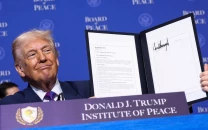
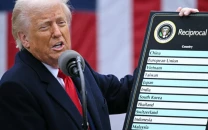

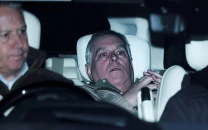












COMMENTS
Comments are moderated and generally will be posted if they are on-topic and not abusive.
For more information, please see our Comments FAQ